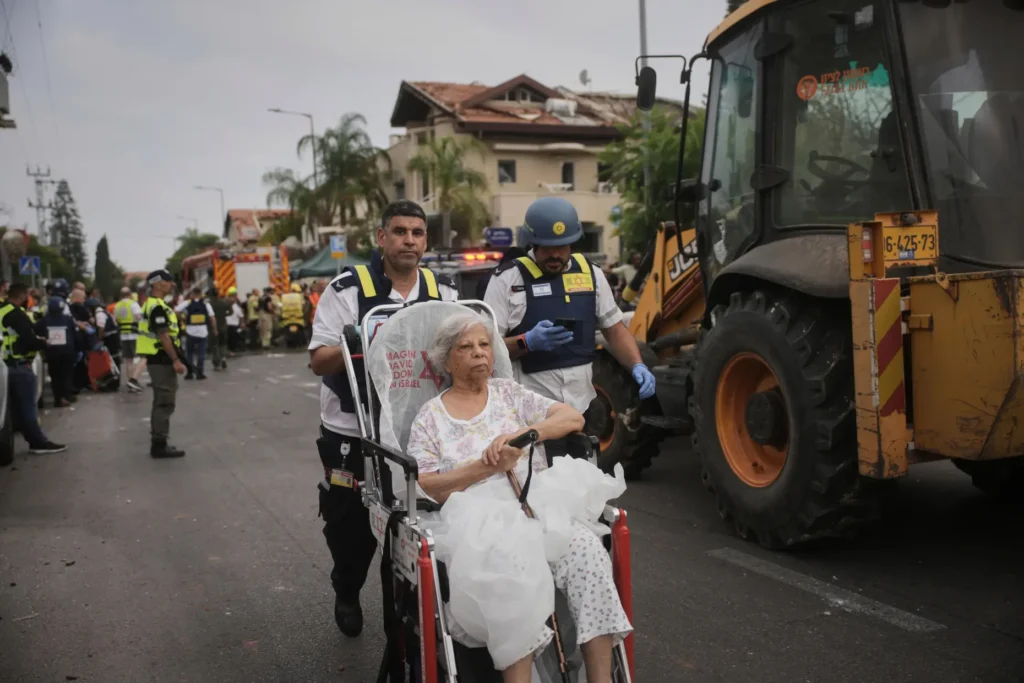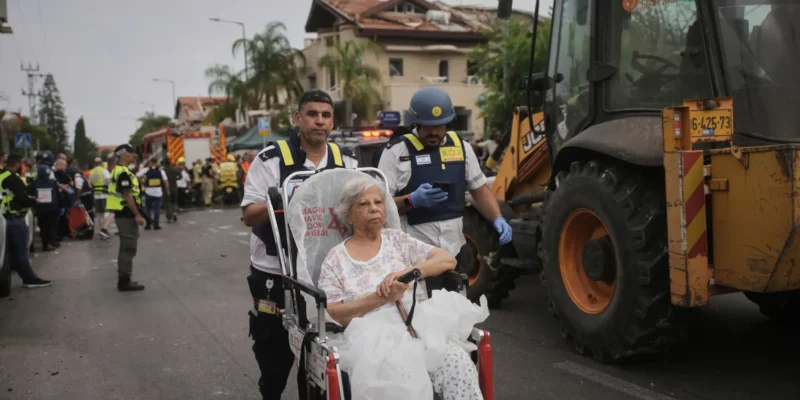
Tensions in the Middle East surged to a critical level on Saturday as Israel launched a series of devastating attacks on Iran’s nuclear and military infrastructure, prompting massive retaliatory strikes and raising fears of a full-scale regional war.
Israel’s Defense Minister Israel Katz issued a chilling warning, declaring that “Tehran will burn” if Iran continues launching missiles at Israeli cities. His remarks followed a deadly morning of Iranian strikes that killed at least three people and wounded dozens across central Israel.
“If Khamenei continues to fire missiles at the Israeli home front — Tehran will burn,” Katz said, referencing Iran’s Supreme Leader Ayatollah Ali Khamenei.
In a surprise overnight operation, Israeli warplanes and pre-positioned drones struck deep inside Iranian territory, targeting key sites including the Natanz and Fordo nuclear enrichment facilities, a research center in Isfahan, and dozens of air defense installations. The attack killed 78 people and wounded over 320, according to Iran’s U.N. ambassador.
Footage verified by state media showed plumes of black smoke rising over cities such as Tehran, Khorramabad, Kermanshah, and Tabriz. Iran’s Mehrabad International Airport reportedly caught fire, while air defenses scrambled to intercept further strikes.
Among those killed were some of Iran’s most senior military commanders, including General Mohammad Bagheri, head of the Iranian armed forces; Revolutionary Guard chief General Hossein Salami; and General Amir Ali Hajizadeh, commander of the ballistic missile program.
Iran retaliated with waves of ballistic missiles and drones, triggering explosions over Jerusalem and Tel Aviv. In one attack, a missile struck a residential area in Rishon Lezion, killing two and injuring 19. Earlier, another woman died after a projectile hit a building in Tel Aviv.
Hospitals across the region are treating dozens of wounded civilians. The Israeli military confirmed more attacks are expected and instructed civilians to remain in shelters.
U.S. air defense systems deployed in the region assisted in intercepting Iranian missiles, a U.S. official confirmed.
The Israeli offensive jeopardizes ongoing nuclear negotiations between Iran and the United States, scheduled for Sunday in Oman. Iran’s Foreign Ministry declared the talks “meaningless” in light of the attacks.
“The U.S. did a job that made the talks become meaningless,” said ministry spokesperson Esmail Baghaei, though he stopped short of confirming the talks’ cancellation.
Meanwhile, leaders across the globe urged restraint. Several Middle Eastern countries, including Jordan and Lebanon, reopened their airspace after briefly halting civilian flights.
Israeli Prime Minister Benjamin Netanyahu confirmed that the operation had been months in the making and delayed from its original April schedule. He emphasized the goal of neutralizing the Iranian threat but also urged Iranians to rise against their leaders.
“We are not seeking regime change, but we would welcome it,” Netanyahu stated.
Security officials disclosed that Israel’s Mossad had smuggled precision weapons and drones into Iran in advance, targeting radar and air defense systems to create a path for warplanes. The result, Israeli officials say, is “significant freedom of movement” in Iran’s airspace.
The Israeli military says it is prepared for a prolonged campaign lasting up to two weeks.
The dramatic escalation comes amid ongoing conflict in Gaza, now in its 20th month, with over two dozen Palestinians reported killed in fresh Israeli airstrikes overnight.
U.S. President Donald Trump, newly re-elected, took to his Truth Social platform to warn Iran: “Israel’s attacks will only get worse. Iran must make a deal, before there is nothing left.”
As both nations vow continued attacks, fears of a broader, multi-front Middle East war loom large. The international community braces for what could become the most dangerous chapter in the region’s recent history.

Comments